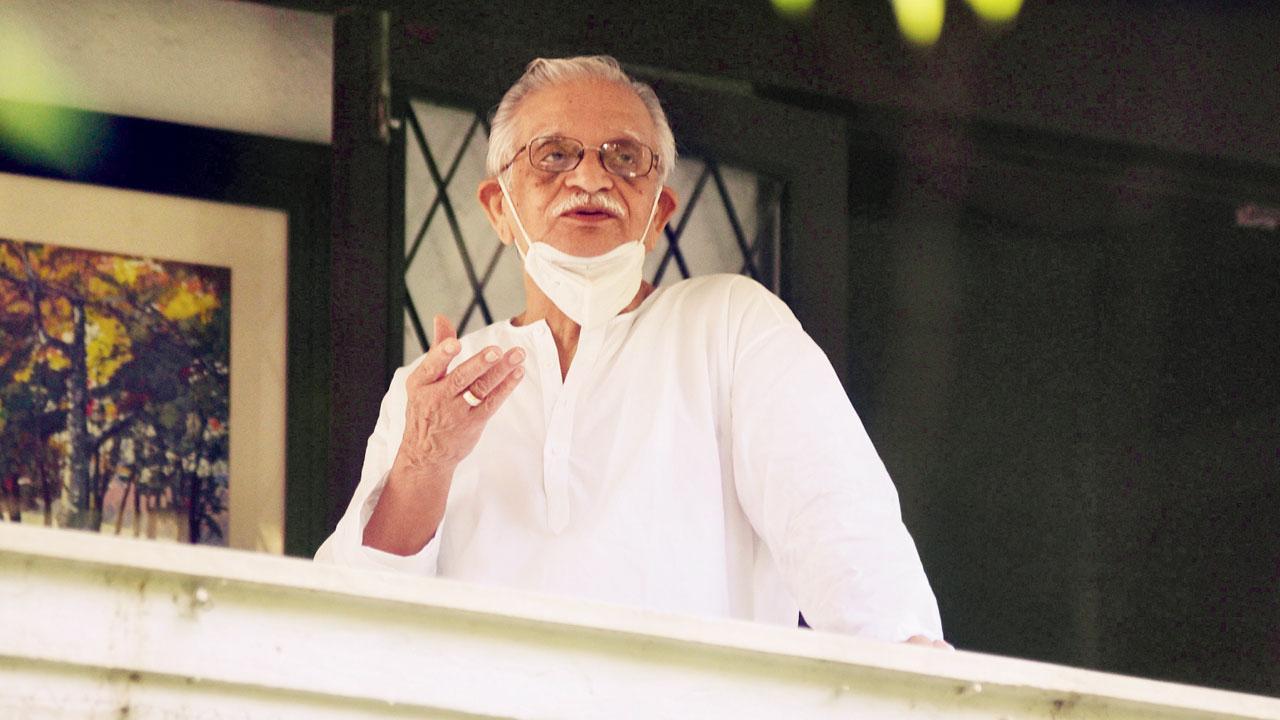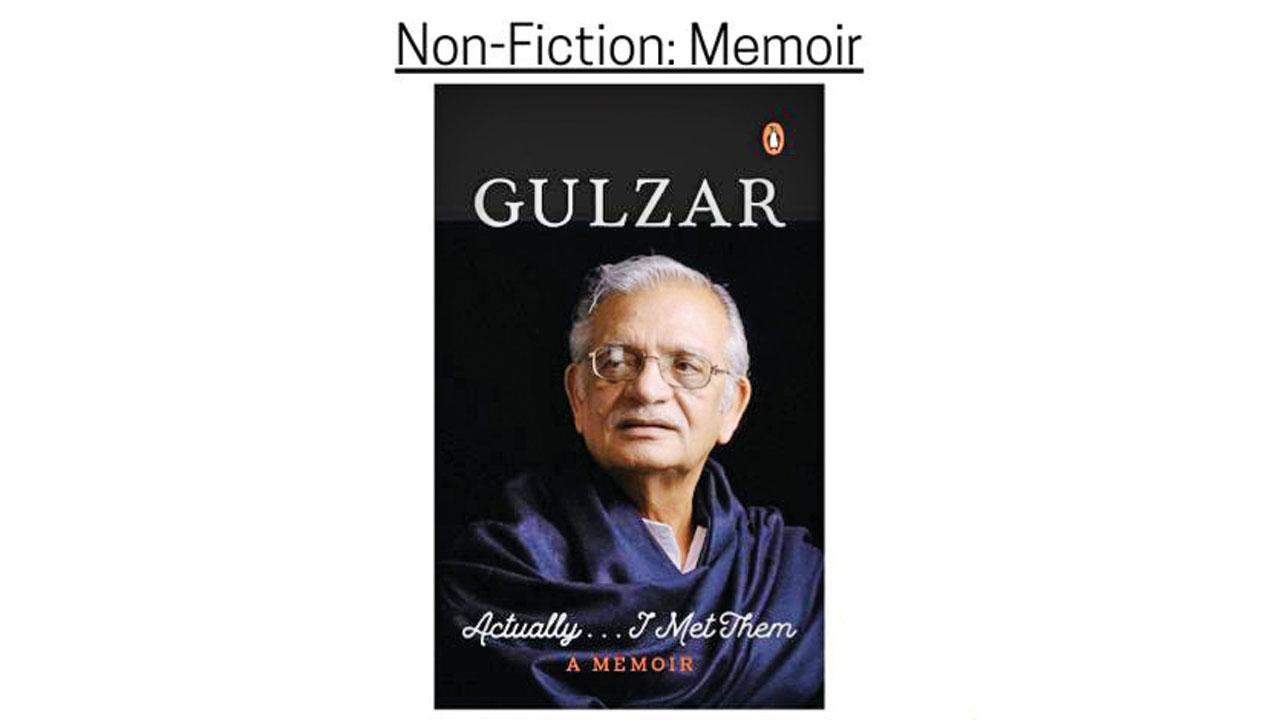What kind of person, at 87, publishes a memoir, altogether about other people? Gulzar, I guess!

Gulzar or Sampooran Singh Kalra was born Punjabi, but it turns out he grew up Bengali—metaphorically
 There is no provincial competition, guys, and certainly no need to take this personally: I just feel that of all non-Hindi cultures in North India, both from a modern and historical perspective, Bengal and Punjab bear the deepest cultural roots/oeuvre—among other aspects, in music and literature.
There is no provincial competition, guys, and certainly no need to take this personally: I just feel that of all non-Hindi cultures in North India, both from a modern and historical perspective, Bengal and Punjab bear the deepest cultural roots/oeuvre—among other aspects, in music and literature.
ADVERTISEMENT
Both geographies also got politically split over religion. These cultures therefore have an equally loved twin on either side of a man-made border. Still, Punjabis and Bengalis, in terms of music/literature, but also otherwise, couldn’t be more separate from each other.
Sampooran Singh Kalra was born Punjabi. It turns out he grew up Bengali—metaphorically, in Bombay, as the possessed writer, reader, colleague and friend, Gulzar. His pseudonym means ‘garden’, I presume. Why did he call himself that? He doesn’t say.
What kind of a person publishes a memoir at 87, which is but altogether about other people anyway? Even gratefully titling it Actually… I Met Them. Reporter-writers do that best, I guess.
But Gulzar, painting prose, poetry, stories, screenplays, is the opposite of a journalist—or a journal artist, as it were. He deals primarily in the world of fiction, even fantasy, whether in films or music (through lyrics).

Cover of Gulzar's memoir Actually...I Met Them
Playful enough to invent words to fit into metre, leave aside reality, sometimes inspiring his later colleagues to do the same. Although Prasoon Joshi’s meaningless ‘Masakali Masakali’ does not equal ‘Chhaiya Chhaiya’ by any stretch.
Way more playful when similarly chilling with children: ‘Chaddi pehenke phool khila hai, phool khila hai (A flower has bloomed wearing underwear, an underwear)’. Or going borderline pornographic, with words that confounded me when I heard them first, ‘Zubaan pe laga, laga re, namak ishq ka (Dropped on my tongue, hey, the salty nectar of love).’
Which isn’t to suggest Gulzar’s works have at any time shied away from reflecting on more transient/political truths, even if he arrives at them quite tangentially. You learn from his memoir that only when his film “Aandhi was in the twenty-second or twenty-third week in India, about to complete a silver jubilee (in theatres)” that it was banned by the government, that is usually averse to reality. That’s when they got it? Surely Aandhi sounded like Gandhi?
The reputably aloof Suchitra Sen played director Gulzar’s version of Indira Gandhi in the film. Sen could cry for any scene in Aandhi (1975), Gulzar recalls, so long as he carried along a cassette-player to the set, and played the lines from the film’s soundtrack, ‘Tum jo keh do toh, aaj ki raat, chaand dubega nahin, chaand ko, rok lo (If you wish, the moon will not wane tonight, hold back the night)’.
The opening verse of that popular song—‘Tere bina zindagi se koi shikwa, toh nahin… Tere bina zindagi bhi lekin, zindagi, toh nahin (Except you, I have no issues with life… Without you, I have no life, worth having issues over)’—remain the most realist-romantic words ever, according to me. As a music buff, I’m not even much into lyrics.
What’s a great writer, if not blessed with intuition—over how others feel/live, often forever, thereby the universal relevance of their works. How does one sharpen intuition, primarily/practically plonked in a desk, over multiple generations, as Gulzar has? The other thing to appreciate about great writers is their power of retention—to commit to memory an observation/thought/situation, exhaling them in various forms.
In his memoir, which is actually journalistic, ‘as told to Sanchari Mukherjee’, over a Bengali newspaper’s Sunday column, Gulzar brings forth his much younger eyes, looking in awe, with warmth, at the men of Bombay, mostly Bengali, he first worked with. Starting with his mentor, filmmaker Bimal Roy. Upon whose death, the singer-entrepreneur Hemant Kumar took him and ex-colleagues under his wings.
After Partition, Bombay’s film industry came to be dominated by Punjabis, with roots in the then Pakistan; particularly with the male star-system that followed. Bengalis remained an equally influential think-tank of artists, fueling this film industry. Gulzar was the accidental Punjabi among Bengalis. Not that there were camps. Or were there?
Trivia buffs will know the film Anand (1971), directed by Hrishikesh Mukherjee (also Bimal Roy’s mentee), was dedicated to Raj Kapoor. Who left Mukherjee in the lurch, at the last minute, for him to cast Rajesh Khanna in the film’s lead role? Kishore Kumar, I learnt from Gulzar. As with others who knew him, Gulzar paints a picture of the maverick Kumar that defies a believable biography!
Similar portraits that emerge of Bengalis in the Bombay film industry are of a fun, potentially lazy lot, pursuing everything else they loved as well, rather than seeing themselves as factories producing popular art. Lazy is the last possibly Bengali trait you might attribute to the 1934-born Gulzar though.
Over six decades, he’s relentlessly regaled us with an artistic output, across forms, touching so many chords, that I notice, astounds fans into delirium—in his casual company, stepping into his Pali Hill bungalow, which is rather rare for an Indian writer. And then they verbosely explain, “Actually… I Met Gulzar.”
I’ve myself been intimidated enough to duck a couple of chances to meet him (as a journalist). So I’ve just left a few questions above. No interview; the beauty is in admiring Gulzar from a distance!
Mayank Shekhar attempts to make sense of mass culture. He tweets @mayankw14
Send your feedback to [email protected]
The views expressed in this column are the individual’s and don’t represent those of the paper.
 Subscribe today by clicking the link and stay updated with the latest news!" Click here!
Subscribe today by clicking the link and stay updated with the latest news!" Click here!







